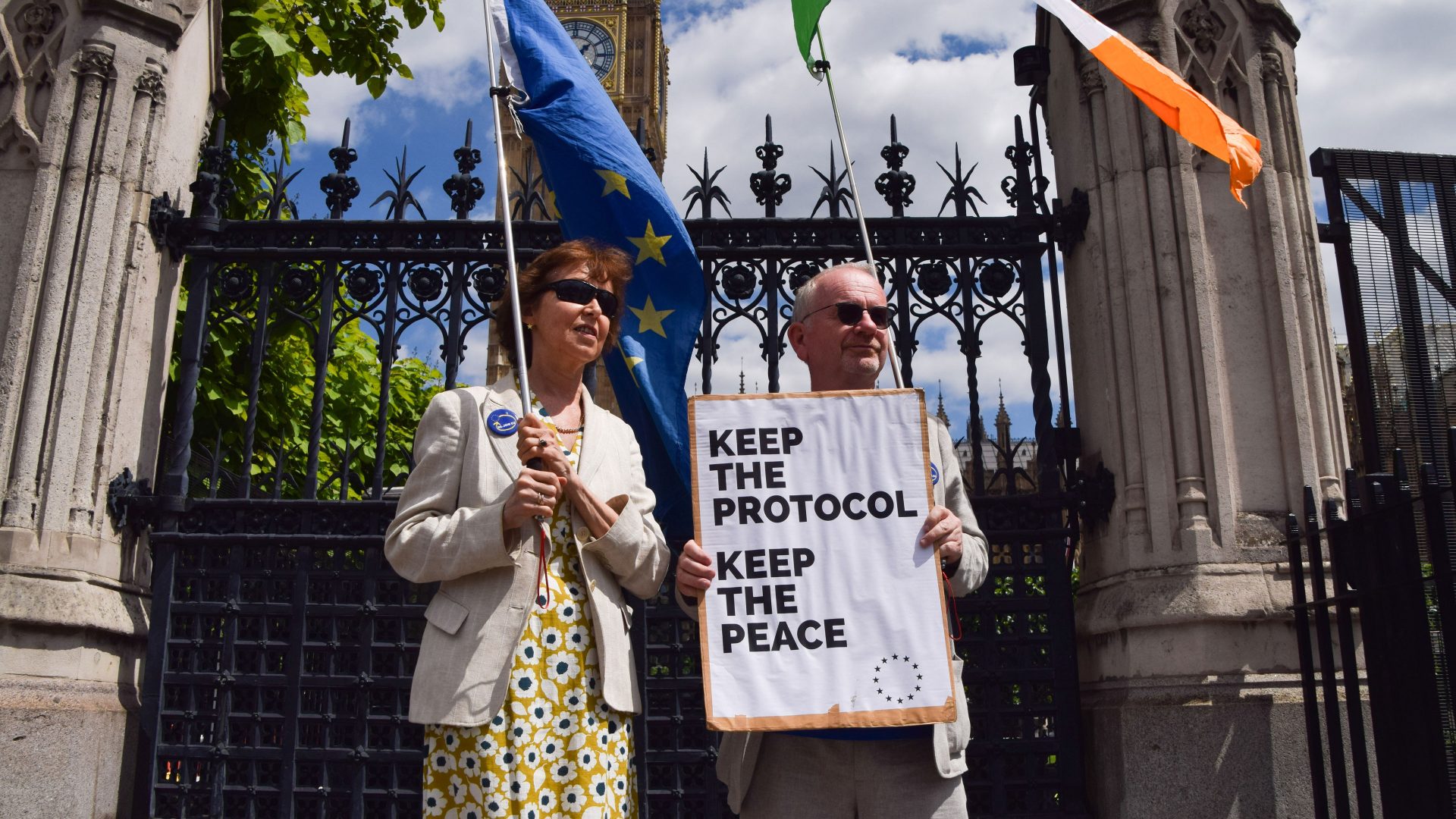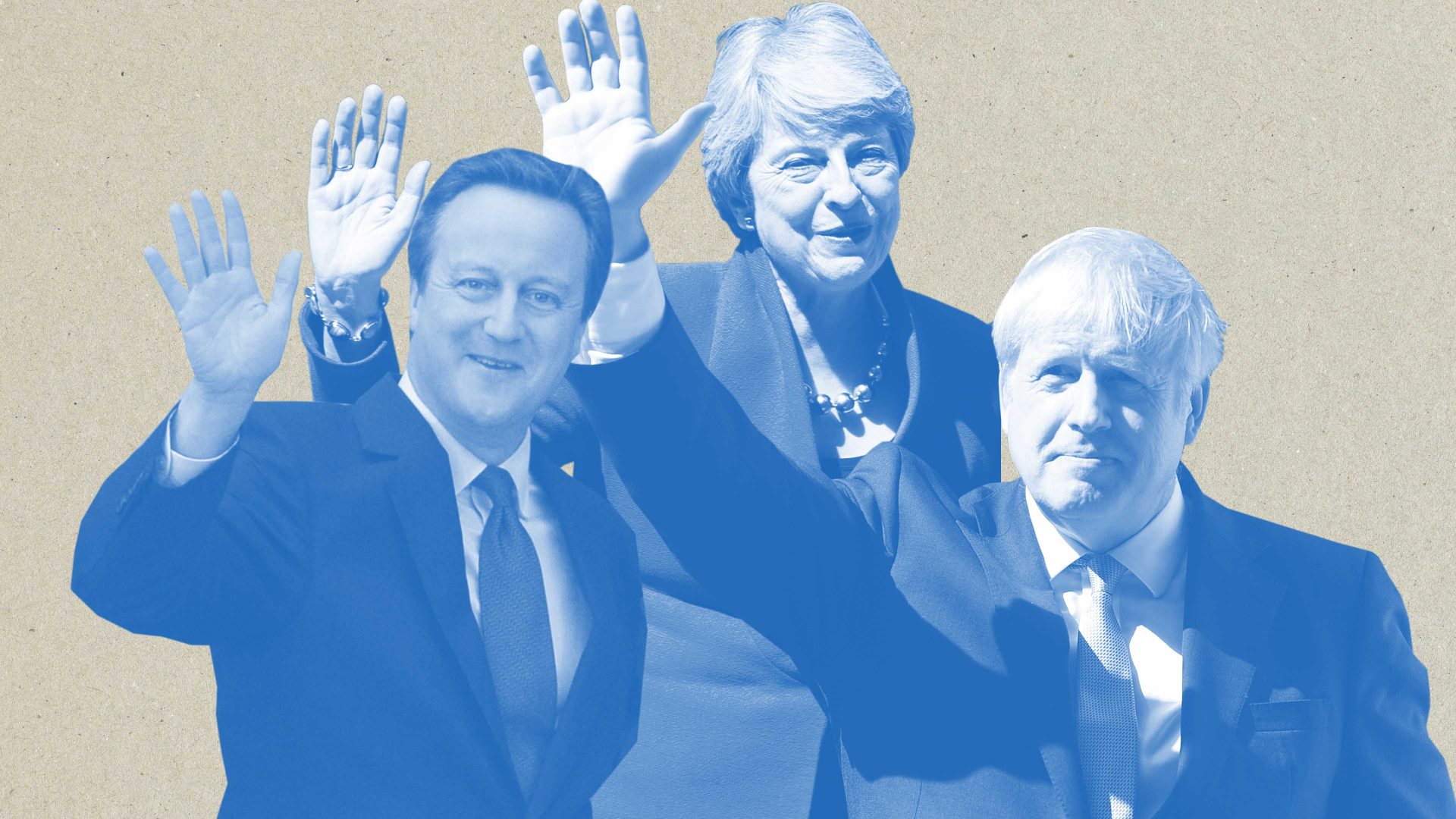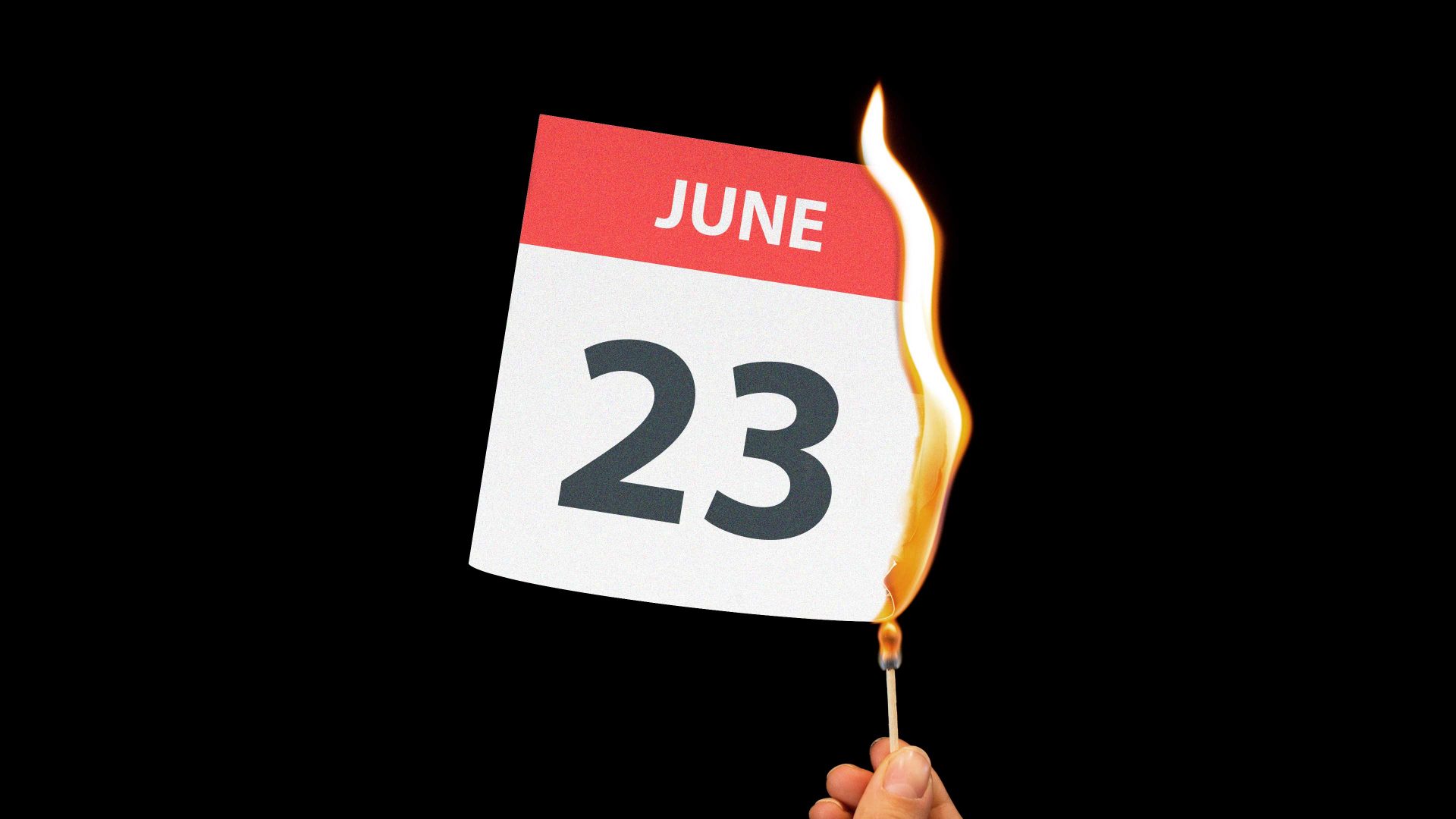There is a memorable season finale of Doctor Who in which River Song – the nearest thing the Doctor has to a wife – breaks the universe. Time itself collapses, so that everything happens all at once, but time never moves, and so nothing happens, either: Cleopatra and Winston Churchill politick against one another, but nothing moves forwards.
To change the topic entirely, this week marked six years since the UK voted to leave the European Union. Six years, more than 2,000 days, or around 52,500 hours – five times over the time Malcolm Gladwell claims any one of us could become a virtuoso at any given skill – since that infamous vote.
And yet in recent weeks, the headlines have been dominated by pro-Brexit think tanks complaining that our negative attitudes are ruining Brexit, by alarming government claims of provoking trade wars with Europe for a better deal on Northern Ireland, and even by promises to bring back pounds and ounces and crowns on beer glasses.
In other words, endless activity, but absolutely no forward motion. We can unpick both the serious and the trivial items in turn. Crowns on pint glasses were never banned by the EU – they just no longer counted as an official mark guaranteeing its capacity.
What the government has done is introduce official guidance telling glassmakers that they can add a crown alongside the official markings when they make a pint glass, if they so choose. That’s all – no rules changes, not even optional ones. Instead, the government has made a leaflet reminding glass makers that they can put stuff on glasses, if they like. Wonderful.
Selling by the pound is similarly asinine: packaged foods are sold internationally, and exporting or importing to the UK post-Brexit is already complicated enough without adding the cost and complexity of bespoke packaging. Letting greengrocers sell in imperial units … sure, why not, except that metric has been taught in UK schools for so long that most people under 60 (or even 70) can use it just fine. Was this really what all of this was for?
That the nostalgia drum is having to be beaten quite so hard, six years on, to sell Brexit is itself a warning sign enough. But the real malaise can be found in the government’s need to desperately fight against the deal it negotiated and signed, when it comes to the Northern Ireland Protocol.
The issue is that the government is trying to do several impossible things all at once. It is trying to create no customs border between Northern Ireland and mainland Great Britain. It is trying to create no customs border on the island of Ireland. And it is trying to do that while not being part of a customs union or single market with the EU, which includes the Republic of Ireland.
Something has got to give – it is just a straightforward and simple statement of fact that only any two of those three statements can be true at once. But by ignoring that simple trade-off for six years, the government has just ensured no forward motion, and has run into – time and again – the exact problems everyone said it would.
No sane person should try to defend the Protocol as it is currently working. But the realities of what is possible is that the Protocol can be tweaked and improved, paperwork reduced, checks negotiated down. It can’t be explained away by a magic piece of legislation or some bold unilateral action.
The fundamental failing and fatal flaw of Brexit was that it took something that will forever be an ongoing conversation and pretended it could be decided once and for all in a binary vote.
When we made the decision to leave the EU, we made a decision to change the basis of our trading relationship with our nearest 27 neighbours. While we were in the EU, we were in constant negotiations of product standards, safety standards, digital standards, data protection, and more – kept in alignment (and thus without trade barriers) by that constant need for agreement.
Leaving the EU takes us out of those negotiations – but whenever the EU changes its standards, or we change our own, we then need to negotiate once again what that means for trade, or for holidaying, or for whether we recognise each others’ professional qualifications.
The EU took hundreds or thousands of small conversations about how we interact in a globalised world and lumped them together into one easily derided target. What Brexit did was disaggregate those conversations – it did not eliminate them.
This is the real reality of Brexit: it can never, ever, be “done”. To suggest it could ever be “done” was a fundamental category error – it would be to suggest we could agree on one kind of relationship with the rest of the world, and then it would never need changing or reopening, ever.
The world is far, far more complicated and fast-moving than that. Every day and every week the government is having to battle the reality of Brexit as a process, as the new normal of how we interact with the EU, as something that is made up of numerous ongoing negotiations, small and large.
But it is having to do so directly against the bluster of its own rhetoric, which imagines Brexit as some kind of 21st-century Battle of Waterloo, which Britain can cheerfully win (with European allies, as pedants will note) before wandering off home for a sandwich.
That’s never going to happen. Brexit is just our lives now. It doesn’t mean we have to interact with or negotiate with the EU any less than before – it may even mean we have to talk with them at even greater length, at greater disadvantage.
Acceptance is part of growth, and part of healing. For Remainers, that means accepting Brexit has happened and it will not be reversed any time soon. Learning to live with it means remembering it is an ongoing process and can be improved – rather than just constantly made worse.
For Brexiteers, acceptance means acknowledging that one vote in 2016 was never going to settle anything for ever. We will always be negotiating our place in the world. Let’s just try to get better at it.




